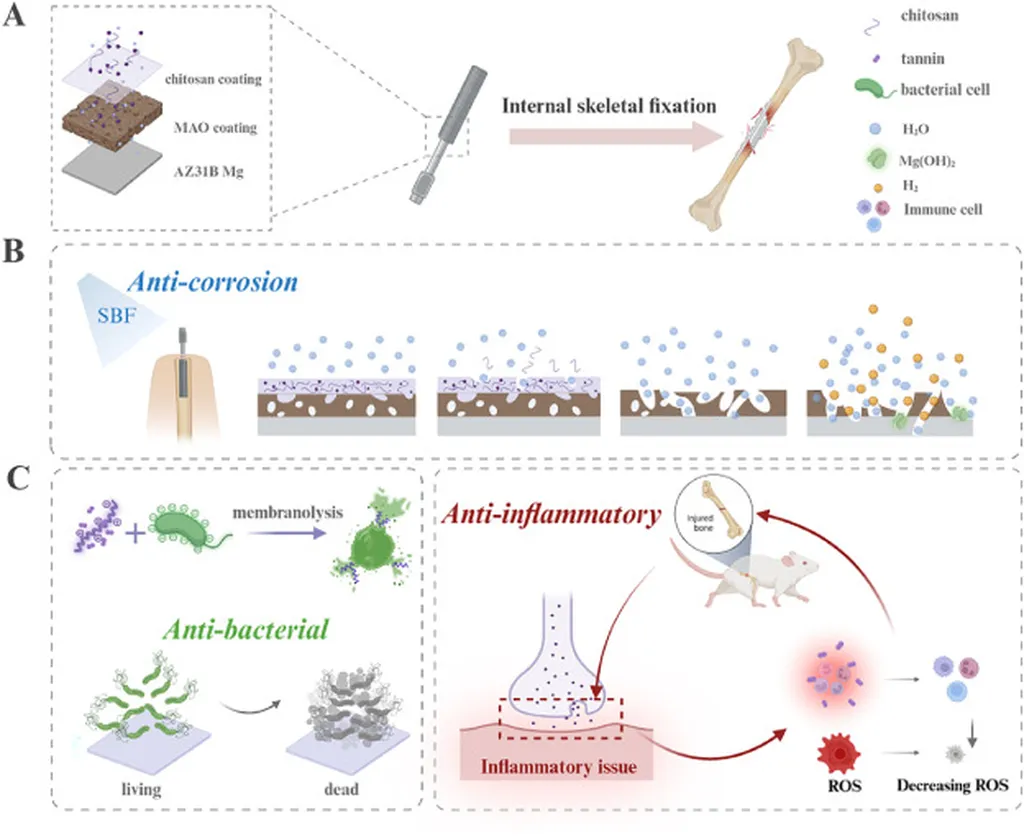In a significant stride towards enhancing the corrosion resistance of magnesium alloys, researchers have developed an environmentally friendly conversion coating using tannic acid. This innovation, led by ZHANG Shudi from the School of Environmental and Chemical Engineering at Shenyang Ligong University, promises to revolutionize the energy sector by improving the durability and performance of magnesium alloy components.
Magnesium alloys are widely used in the energy sector due to their lightweight and high strength-to-weight ratio. However, their susceptibility to corrosion has been a longstanding challenge. The research published in *Cailiao gongcheng* (which translates to *Materials Engineering*) introduces a novel solution to this problem. By employing a chemical conversion method with tannic acid as the coating agent, the team has successfully created a protective layer that significantly enhances the corrosion resistance of AZ91D magnesium alloy.
The optimization of the conversion process was achieved through the Box-Behnken test, a statistical method used to determine the optimal conditions for the reaction. “The pH value, reaction temperature, and conversion time were critical factors in achieving the best results,” explained ZHANG Shudi. The optimal conditions were found to be a tannic acid content of 10 g/L, a pH value of 2.7 (adjusted with hydrochloric acid), a reaction temperature of 41°C, and a conversion time of 15 minutes.
The resulting conversion coating exhibited excellent corrosion resistance, uniform density, and complete coverage. “The coating is primarily composed of tannic acid hydrolysate and Mg2+ chelate, which provides a robust protective layer,” ZHANG Shudi added. The study also revealed that the pH value significantly impacts the coating’s corrosion resistance. Too low a pH results in a rough and poorly compacted coating, while too high a pH leads to a thin and discontinuous coating.
This research has profound implications for the energy sector, particularly in applications where magnesium alloys are exposed to harsh environments. Improved corrosion resistance can extend the lifespan of components, reduce maintenance costs, and enhance overall performance. As the energy sector continues to seek lightweight and durable materials, this innovation could pave the way for more widespread use of magnesium alloys in critical applications.
The findings not only address a longstanding challenge but also open new avenues for research and development in the field of materials science. By leveraging environmentally friendly methods and materials, this study sets a precedent for sustainable advancements in the energy sector. As the industry continues to evolve, such innovations will be crucial in meeting the demands for efficiency, durability, and sustainability.

